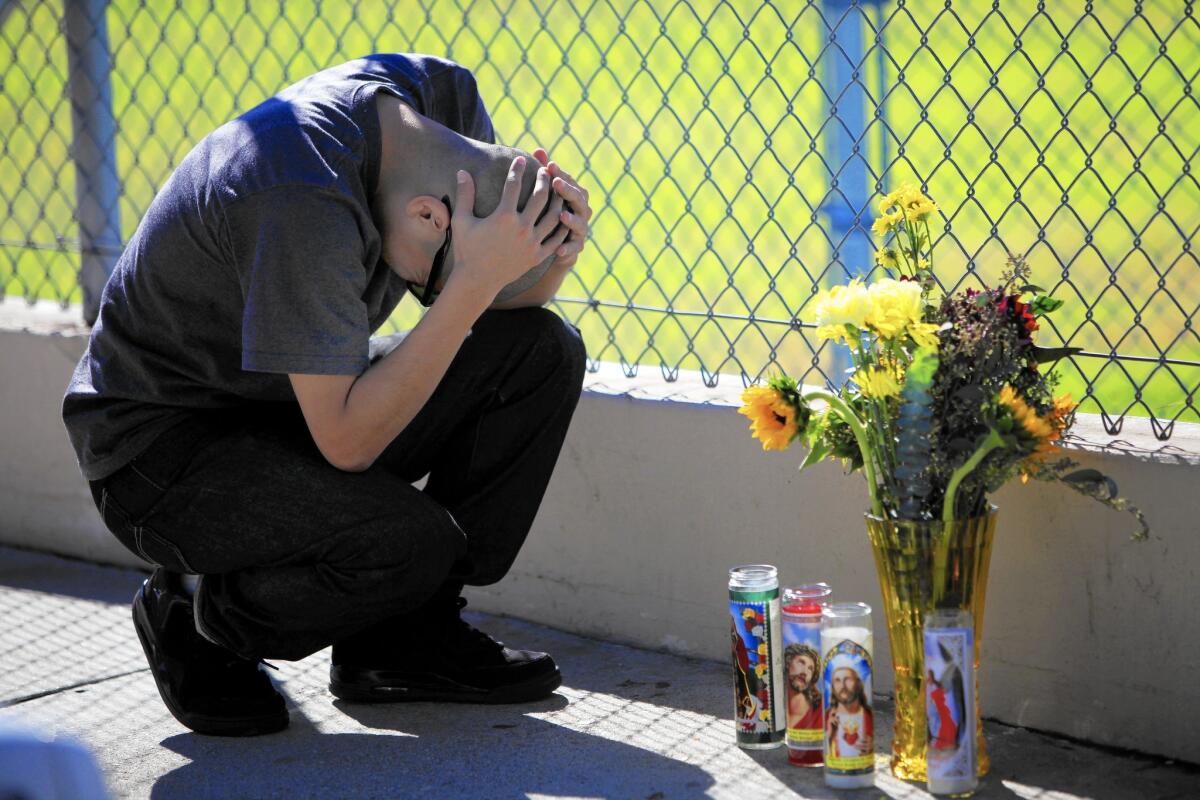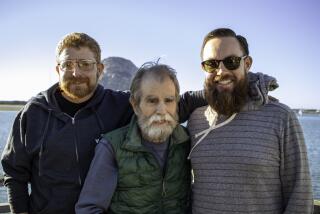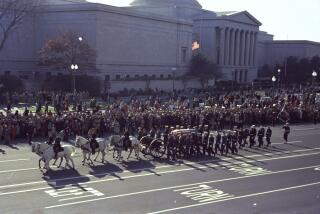Can’t we still muster compassion for a soldier whose death is no longer ironic?

It was a case that made for good headlines and a heart-wrenching story: A young Army veteran just back from Afghanistan is shot to death on the street outside his homecoming party in Sylmar.
“The ironies are obvious,” said an LAPD lieutenant, commenting on the death of Francisco Garcia last week. “To survive as a soldier in an overseas conflict, only to be killed in your neighborhood upon your return.”
The killing occurred just before Veterans Day and made news around the country.
But a few days later, a fact surfaced that made the story less than ironic: The 21-year-old had never been deployed to Afghanistan; he’d spent his two-year Army hitch on a military base in New York.
There’s been finger-pointing about who said what and who’s to blame for the error: The family, the police, the news media — or the soldier himself, who may have lied to friends and family in a desperate bid for glory.
I believe we are all complicit in that embellishment.
::
An 18-year-old Sylmar man has been charged with murder in Garcia’s death. Acquaintances say the two may have had an earlier dispute linked to their association with local “tagging” crews.
That makes Garcia, in the eyes of some, less a hero and more a hoodlum.
But it doesn’t make his death any less tragic — or at least it shouldn’t.
Garcia was, by all accounts, a devoted son and a loving brother, with a big contingent of friends. He wasn’t doing anything sinister when he was gunned down, just wrapping up a Saturday night at a neighborhood party with his girlfriend.
More than $7,500 has been pledged on a website set up by Garcia’s family to raise money for his funeral.
“Regardless of what happened, my brother risked his life away from his home and family to protect his country,” his sister Jennifer wrote, after the story of his service in Afghanistan had been debunked.
Some people still felt duped. “Sad when I heard this story; now just mad,” one reader wrote on the comment board posted with The Times’ update online.
Other comments, like this one, questioned the hullabaloo: “Why should where he served in the Army detract from the fact he was murdered in cold blood? So if he served in Afghanistan that makes his death more heartbreaking?”
Yes, it does — maybe not to his family and friends, but to the rest of us.
I thought about all the times I’ve participated in the process, shading and shaping a victim’s profile in my column so the person is more than a stereotype and the crime not just a statistic.
We recognize the power of a compelling story to squeeze a little compassion from an audience weary of crime coverage or desensitized to violence.
It’s an offering of sorts: Here, among the masses of victims, is a stranger you ought to mourn.
::
Crime may be going down, but it hasn’t gone away. Some days it’s depressing to turn on the news or pick up the paper. So we tune out and distance ourselves from other people’s pain.
UC Berkeley criminal justice researcher Heather Warnken told me there’s a societal cost to that sort of detachment. State services for crime victims don’t reach the people who need them most because those are the victims who aren’t on our radar screen.
“We put people into boxes that dictate how much sympathy they’re entitled to,” she said. “We have this false perception that there are ‘worthy’ and ‘unworthy’ victims. And victims who don’t meet that model media-projected image don’t have the feeling those services are for them.”
We shouldn’t have to go to extremes to memorialize murder victims. Garcia’s death matters not because he was or wasn’t a combat veteran.
I imagine his family’s grief must be compounded now. The young man they called Frankie, who “always thought about us, wherever he was,” is now considered by some an impostor.
So here’s a glimpse of the Frankie Garcia his family grieves — absent any need to make him into a hero:
“Frankie was known for having a big heart and helping anyone who needed assistance,” wrote one of his sisters in an online tribute. “This is perhaps because our parents, from a meek background, taught him the importance of aiding those who are less fortunate. Specifically, his friends describe that whenever they needed a ride, they knew who to call.
“Recently, he was extremely excited about repairing our home himself. He dedicated his weekends to install the wooden floors in our rooms that my mother so much wanted.”
That may not rate a mention on tonight’s newscast, but it’s reason enough to feel sympathy for the Garcia family.
Twitter: @SandyBanksLAT
More to Read
Start your day right
Sign up for Essential California for news, features and recommendations from the L.A. Times and beyond in your inbox six days a week.
You may occasionally receive promotional content from the Los Angeles Times.







